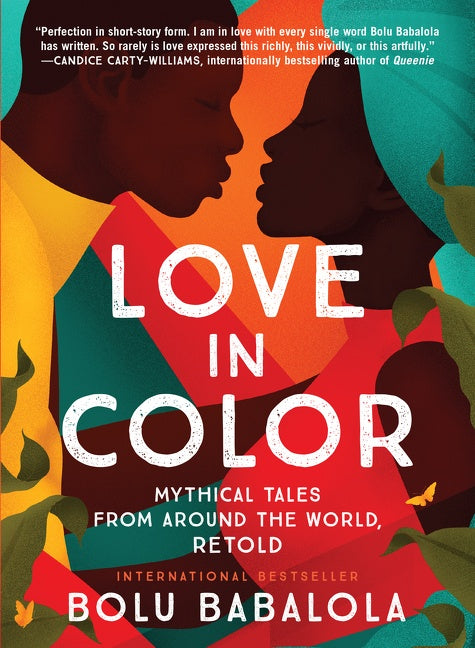All about love in Bolu Babalola’s ‘Love in Color’
February 26, 2022
Love takes center stage in Bolu Babalola’s novel, “Love in Color: Mythical Tales from Around the World, Retold.”
This collection of short stories celebrate love from all over the world, as the Nigerian British journalist chose to reimagine the many long-forgotten mythical love stories from different cultures and adapted them into the modern age.
Her writing is sensational, creating one of the most beautiful collections of writings. Babalola’s words err away from the overtly cliché, instead her diction feels like it comes from someone who genuinely cares and exalts love in all its forms.
She calls herself a “lover of love,” according to Net–a–Porter, and that sentiment is so clearly exhibited in how she crafts and handles each story.
She took particular care when adapting the myths, taking inspiration from a variety of places, spanning across Ancient Greece and Mesopotamia to Africa and Asia.
Babalola chose to adapt 10 folktales, including those of Ọṣhun of the Yoruba religion in Nigeria and Zhinü from the story of “The Cowherd and the Weaver Girl” in China.
With each, she said goodbye to the archaic misogyny eld in the original tales and created worlds where the heroine had her own agency.
“With this book, I was able to re-imagine these stories in a manner that meant that the women were centered,” Babalola wrote in the author’s note of her book. “It was less about being chosen and more about their agency in allowing themselves to love and be loved.”
Take for example the story of Siya from the ancient Soninke legend of Wagadou. In the original myth, she was a maiden chosen to be sacrificed to the snake god, Bida, in order to maintain the wealth and prosperity of Wagadou. She is saved by her betrothed, Maadi, who fought the snake god.
In her retelling, Babalola makes Siya a warrior who leads an army to try and save her people from the invading Bida. Instead of being helpless and having to rely on Maadi, the couple try to save each other from their fates.
Babalola also writes three short stories where she crafts her own folklore. One of them, the story of Alagomeji, is inspired by her favorite love story — that of her parents.
The book is also refreshing because we get to hear love stories from a multi-cultural lense. The details in each short story highlight the cultures that each legend comes from and pays homage to them.
“We are nothing, if not our stories,” Babalola said in an interview with Literary Hub about writing myths in relation to romance. “And for me, it was capturing a) the universality of love and connection but also the fact that if we’re not seeing these stories with different cultures, what are we saying about who deserves love, you know, and who has access to love, and who is the face of love?”
Each story will leave you more appreciative of love and all the forms it takes. While fans of mythology will appreciate these retellings, readers will enjoy the depth of detail and storytelling that Babalola masterfully displays in her writing.








